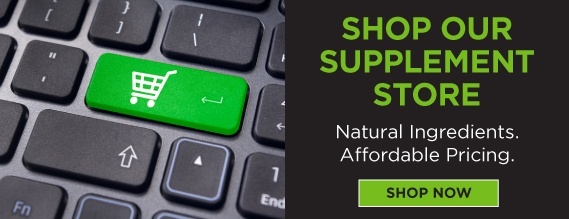
In the past, supplements were formulated by doctors and other healthcare practitioners who wanted to create effective products for their patients. Today, an increasing number of entrepreneurs have caught onto the profitability of supplement sales, creating uncertainty around the quality of products on the market.
While some supplement vendors who aren’t healthcare professionals offer high-quality products, it can be hard for the average consumer to know the difference between a good product and a potentially harmful one.
Some supplements sold on eCommerce platforms don’t always offer what their label claims. Beyond wasting money on supplements that don’t deliver results, you run the risk of buying a contaminated product.

When it comes to supplement quality (especially in the online marketplace), it’s important to know what you’re getting. Understanding what to look for and how to trust supplements is critical to getting the most bang for your buck—and protecting your health.
four considerations for buying supplements online
It’s essential to consider the following factors when vetting any supplement. These considerations are even more important when shopping online.
inactive ingredients
Aside from the active ingredient (for example, curcuminoids in turmeric extract), it’s important to pay attention to a supplement’s inactive ingredients. In the case of pills or capsules, for example, certain inactive ingredients are essential to giving the supplement shape and helping it bind and stabilize. But not all inactive ingredients are created equal, and not all are necessary.
Also concerning are supplements found to contain contaminants like heavy metals, mold, agricultural chemicals, PCBs, aflatoxins, and pharmaceuticals.[1]
quality tested
Ongoing third-party testing is key, and companies should always be transparent and willing to provide evidence of their testing practices. High-quality supplement companies will comply with Current Good Manufacturing Practices (cGMPs), and should hold themselves to this quality standard. Realistically, the FDA monitors just 5-10% of supplement companies in any given year, and third-party testing organizations help verify that the label reflects what is in the bottle.
rancidity and expiration dates
Always check to make sure there is an expiration date on the bottle that does not look tampered with. Expired supplements can lose potency and even contribute to health issues. For example, delicate omega-3 fatty acids can quickly go rancid, potentially leading to unhealthy LDL cholesterol levels.[2]
potency
Proper quality testing helps assure that the potency promised on the supplement label is what you get. Professional supplement manufacturers go above and beyond basic GMP guidelines to perform end-product testing for potency.
If these specifics feel overwhelming when considering online supplements, the most important part is knowing where to look for trusted and professional brands.
where to buy high-quality online supplements
If purchasing supplements online, it’s easiest to buy directly from the company itself instead of Amazon or other eCommerce platforms. However, many reputable supplement companies do offer their products on multiple platforms, so be sure to check if the official store is selling the product on any eCommerce site.
If you purchase a professional quality supplement brand online and the product inside looks, smells, or feels different than it has in the past, this is a red flag.
If you don’t have or can’t afford personalized care from an integrative doctor, get a practitioner’s recommendation and check the brands they sell on their online supplement store. Knowing which brands they use and trust can influence the products you buy from their online store or the company’s website.
online supplements: you get what you pay for
It’s no secret that high-quality nutritional supplements are not cheap, whether purchased online or elsewhere. Unfortunately, you often get what you pay for when opting for less expensive supplements. Products that claim to be professional quality but are significantly cheaper online are typically another red flag. Investing in your health with high-quality supplements purchased directly from your practitioner or the company’s website will ensure safety and efficacy.

[1] Ernst E. Heavy metals in traditional Indian remedies. Eur J Clin Pharmacol. 2002 Feb;57(12):891-6. doi: 10.1007/s00228-001-0400-y. PMID: 11936709.
[2] https://www.consumerlab.com/answers/how-can-i-tell-if-my-fish-oil-supplement-is-rancid-oxidized-or-spoiled-and-if-it-is-spoiled-is-it-still-safe-to-take/rancid-oxidized-fish-oil/













.jpg)




